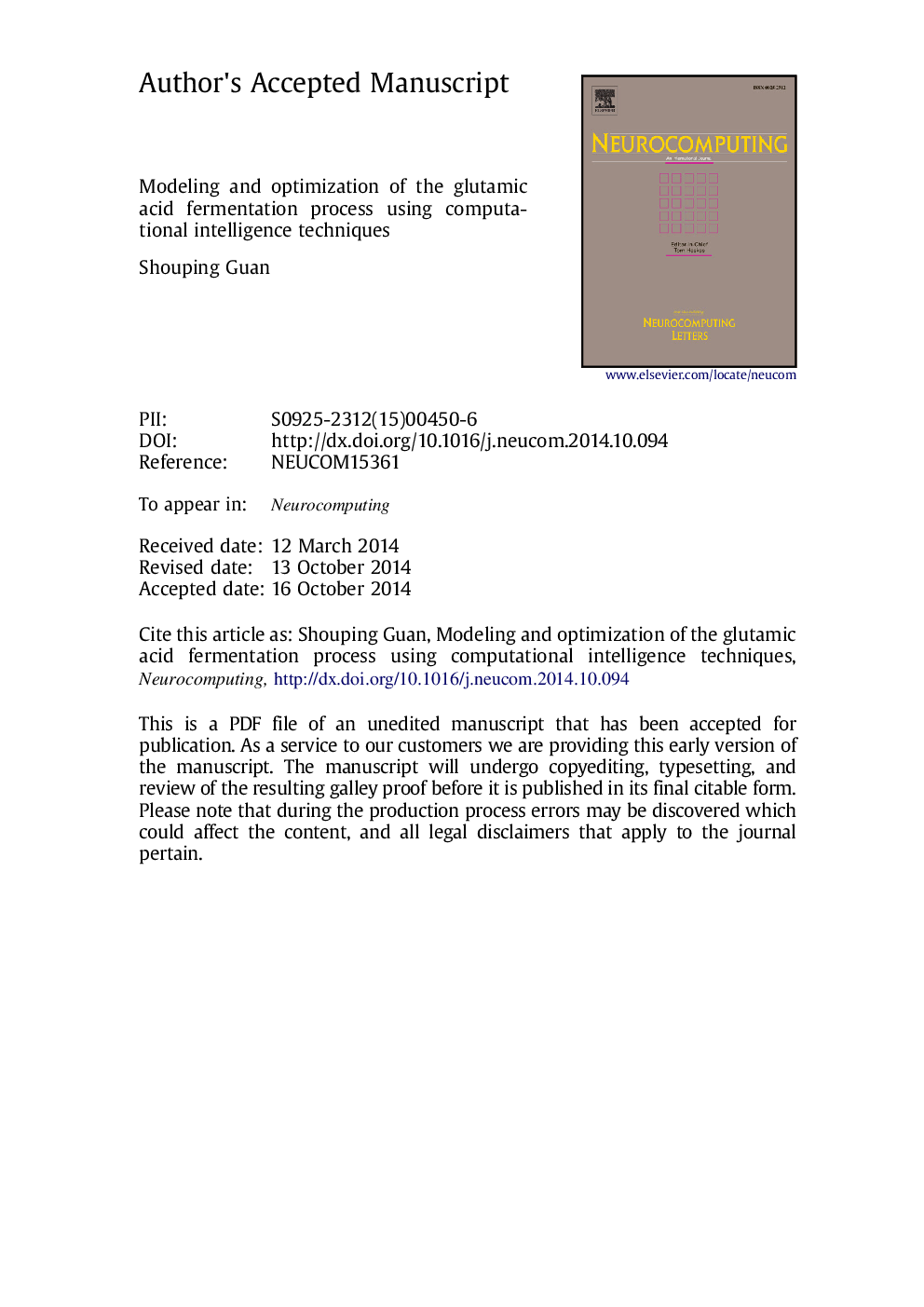| Article ID | Journal | Published Year | Pages | File Type |
|---|---|---|---|---|
| 6865639 | Neurocomputing | 2015 | 19 Pages |
Abstract
This paper presents a framework for modeling and optimizing the glutamic acid fermentation process using computational intelligence techniques. Considering the special characteristics of such an industrial process, we propose a two-phase optimization strategy to maximize the conversion rate and product concentration of the glutamic acid. Neural network ensembles and an improved Differential Evolutionary Algorithm (DEA) with a non-inferior sorting scheme and niche technology are employed for problem solving. This work provides an approach for design of a model-free optimal control system for the fed-batch fermentation process. Experimental results are promising and demonstrate the applicability of the proposed modeling and optimization techniques for real world applications.
Keywords
Related Topics
Physical Sciences and Engineering
Computer Science
Artificial Intelligence
Authors
Shouping Guan,
